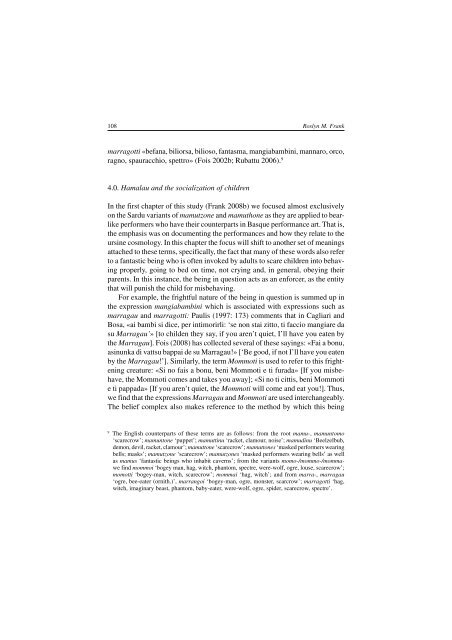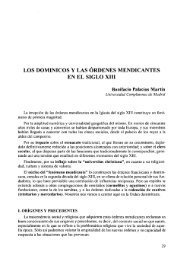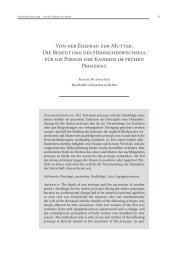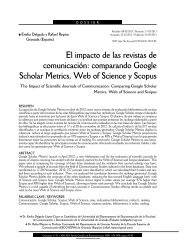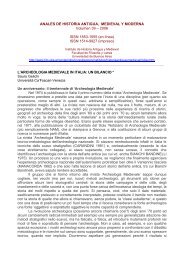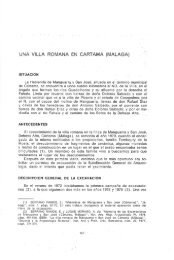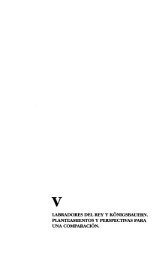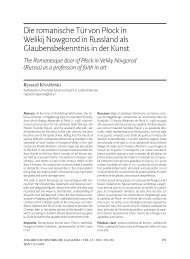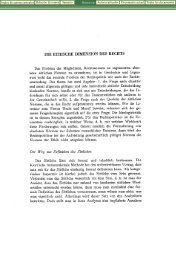Roslyn M. Frank 1.0. Introduction In the first chapter of this ... - Dialnet
Roslyn M. Frank 1.0. Introduction In the first chapter of this ... - Dialnet
Roslyn M. Frank 1.0. Introduction In the first chapter of this ... - Dialnet
Create successful ePaper yourself
Turn your PDF publications into a flip-book with our unique Google optimized e-Paper software.
108 <strong>Roslyn</strong> M. <strong>Frank</strong><br />
marragotti «befana, biliorsa, bilioso, fantasma, mangiabambini, mannaro, orco,<br />
ragno, spauracchio, spettro» (Fois 2002b; Rubattu 2006). 9<br />
4.0. Hamalau and <strong>the</strong> socialization <strong>of</strong> children<br />
<strong>In</strong> <strong>the</strong> <strong>first</strong> <strong>chapter</strong> <strong>of</strong> <strong>this</strong> study (<strong>Frank</strong> 2008b) we focused almost exclusively<br />
on <strong>the</strong> Sardu variants <strong>of</strong> mamutzone and mamuthone as <strong>the</strong>y are applied to bearlike<br />
performers who have <strong>the</strong>ir counterparts in Basque performance art. That is,<br />
<strong>the</strong> emphasis was on documenting <strong>the</strong> performances and how <strong>the</strong>y relate to <strong>the</strong><br />
ursine cosmology. <strong>In</strong> <strong>this</strong> <strong>chapter</strong> <strong>the</strong> focus will shift to ano<strong>the</strong>r set <strong>of</strong> meanings<br />
attached to <strong>the</strong>se terms, specifically, <strong>the</strong> fact that many <strong>of</strong> <strong>the</strong>se words also refer<br />
to a fantastic being who is <strong>of</strong>ten invoked by adults to scare children into behaving<br />
properly, going to bed on time, not crying and, in general, obeying <strong>the</strong>ir<br />
parents. <strong>In</strong> <strong>this</strong> instance, <strong>the</strong> being in question acts as an enforcer, as <strong>the</strong> entity<br />
that will punish <strong>the</strong> child for misbehaving.<br />
For example, <strong>the</strong> frightful nature <strong>of</strong> <strong>the</strong> being in question is summed up in<br />
<strong>the</strong> expression mangiabambini which is associated with expressions such as<br />
marragau and marragotti: Paulis (1997: 173) comments that in Cagliari and<br />
Bosa, «ai bambi si dice, per intimorirli: ‘se non stai zitto, ti faccio mangiare da<br />
su Marragau’» [to childen <strong>the</strong>y say, if you aren’t quiet, I’ll have you eaten by<br />
<strong>the</strong> Marragau]. Fois (2008) has collected several <strong>of</strong> <strong>the</strong>se sayings: «Fai a bonu,<br />
asinunka di vattsu bappai de su Marragau!» [‘Be good, if not I’ll have you eaten<br />
by <strong>the</strong> Marragau!’]. Similarly, <strong>the</strong> term Mommoti is used to refer to <strong>this</strong> frightening<br />
creature: «Si no fais a bonu, beni Mommoti e ti furada» [If you misbehave,<br />
<strong>the</strong> Mommoti comes and takes you away]; «Si no ti cittis, beni Mommoti<br />
e ti pappada» [If you aren’t quiet, <strong>the</strong> Mommoti will come and eat you!]. Thus,<br />
we find that <strong>the</strong> expressions Marragau and Mommoti are used interchangeably.<br />
The belief complex also makes reference to <strong>the</strong> method by which <strong>this</strong> being<br />
9 The English counterparts <strong>of</strong> <strong>the</strong>se terms are as follows: from <strong>the</strong> root mamu-, mamuntomo<br />
‘scarecrow’; mamuntone ‘puppet’; mamuttinu ‘racket, clamour, noise’; mamudinu ‘Beelzelbub,<br />
demon, devil, racket, clamour’; mamuttone ‘scarecrow’; mamuttones ‘masked performers wearing<br />
bells; masks’; mamutzone ‘scarecrow’; mamutzones ‘masked performers wearing bells’ as well<br />
as mamus ‘fantastic beings who inhabit caverns’; from <strong>the</strong> variants momo-/mommo-/mommawe<br />
find mommoi ‘bogey man, hag, witch, phantom, spectre, were-wolf, ogre, louse, scarecrow’;<br />
momotti ‘bogey-man, witch, scarecrow’; mommai ‘hag, witch’; and from marra-, marragau<br />
‘ogre, bee-eater (ornith.)’, marrangoi ‘bogey-man, ogre, monster, scarcrow’; marragotti ‘hag,<br />
witch, imaginary beast, phantom, baby-eater, were-wolf, ogre, spider, scarecrow, spectre’.


